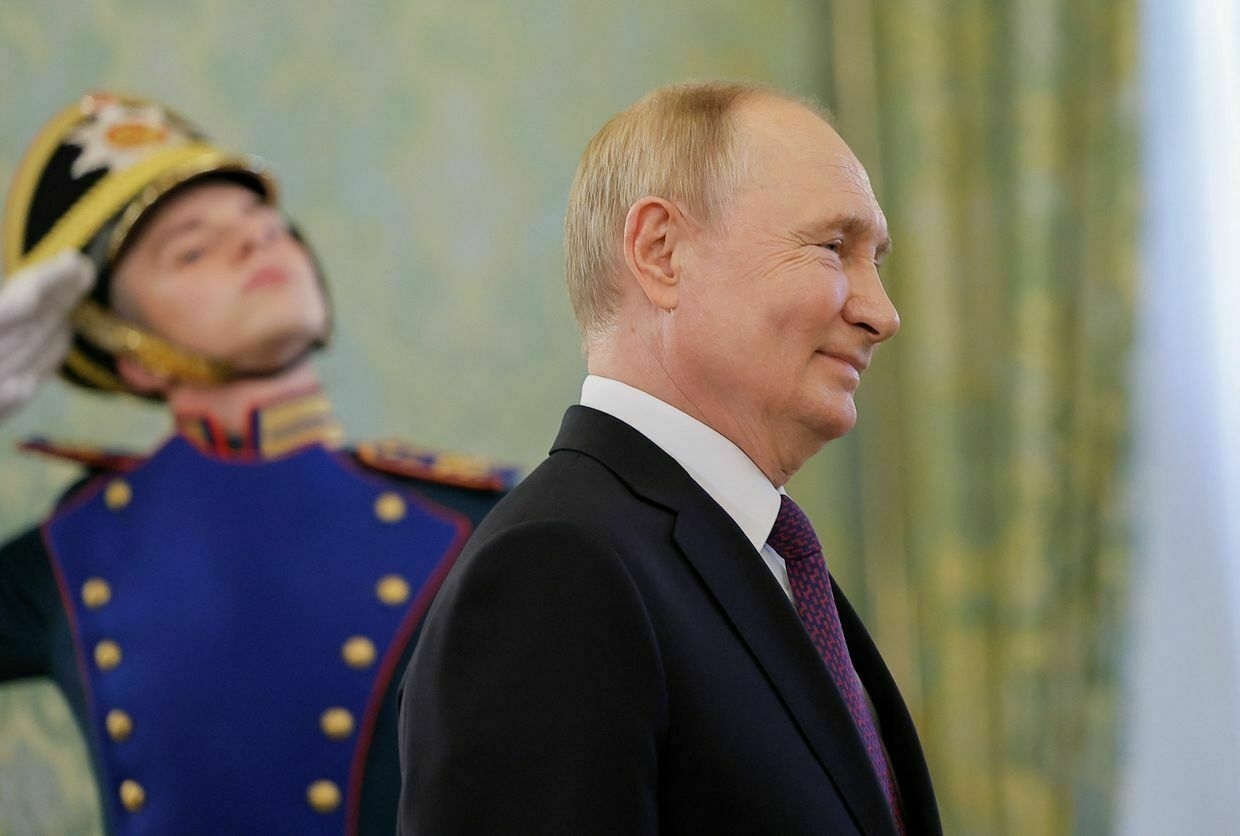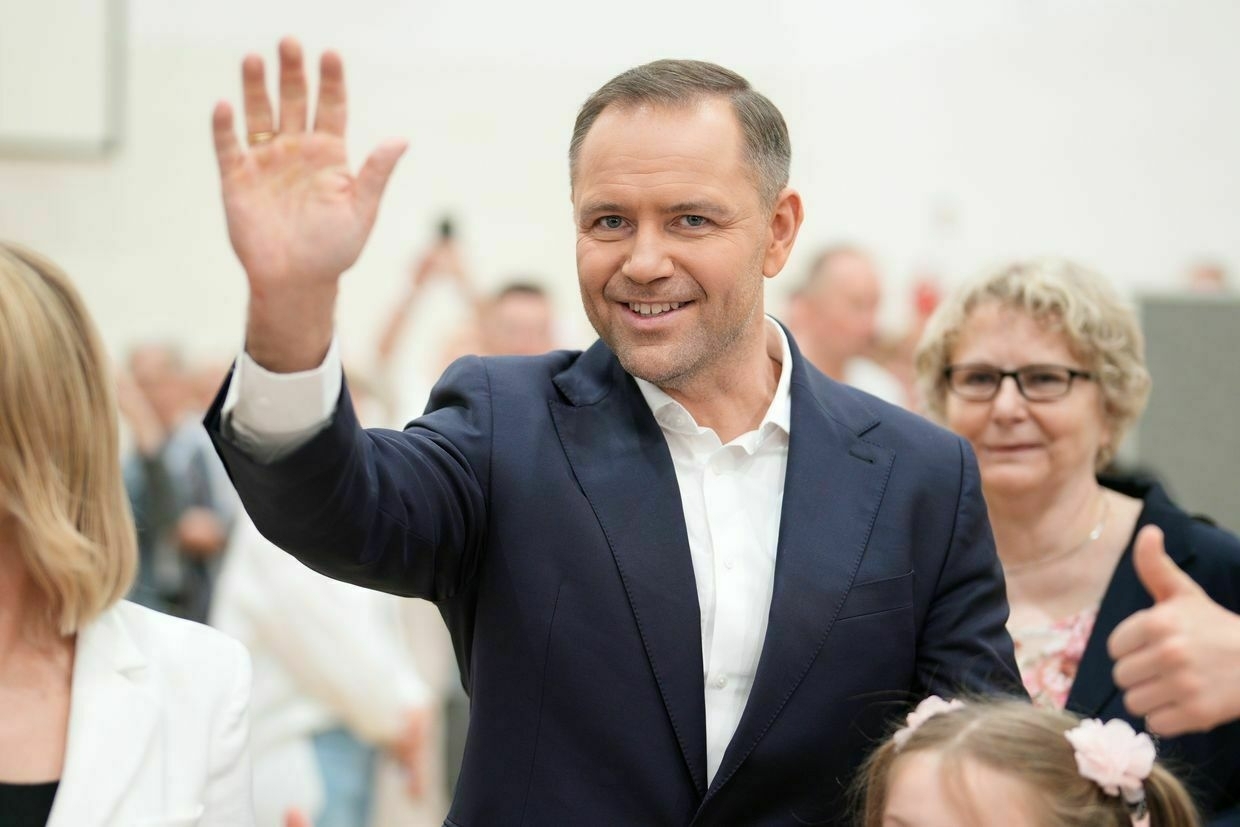
In a closely contested presidential runoff, conservative historian Karol Nawrocki has been declared the winner of Poland’s 2025 presidential election, securing 50.89% of the vote against liberal Warsaw Mayor Rafał Trzaskowski’s 49.11%.
The result marks a significant shift in Polish politics, with consequences for both the domestic and international landscape — particularly in dealings with neighboring Ukraine, fighting off Russia’s full-scale invasion.
Divided country
Late on June 1, Trzaskowski, his campaign staff, and members of Donald Tusk’s ruling Civic Platform, which supported the Warsaw mayor, were celebrating.
Early exit polls showed Trzaskowski’s slight lead. Together with earlier opinion polls that placed Trzaskowski ahead of his competition, it looked like his victory was a done deal.
Early on June 2, the official results were a cold shower for the liberal mayor. Nawrocki and the opposition Law and Justice (PiS) party triumphed, retaining the presidency controlled by right-wing nationalists since 2015.
Though lacking any prior elected office, 42-years-old Nawrocki ran a campaign that resonated strongly with conservative voters by emphasizing traditional Catholic values, national sovereignty, and skepticism toward the European Union. His win, driven by promises of “bringing back normalcy,” is likely to slow — or even reverse — Poland’s liberal political trajectory.
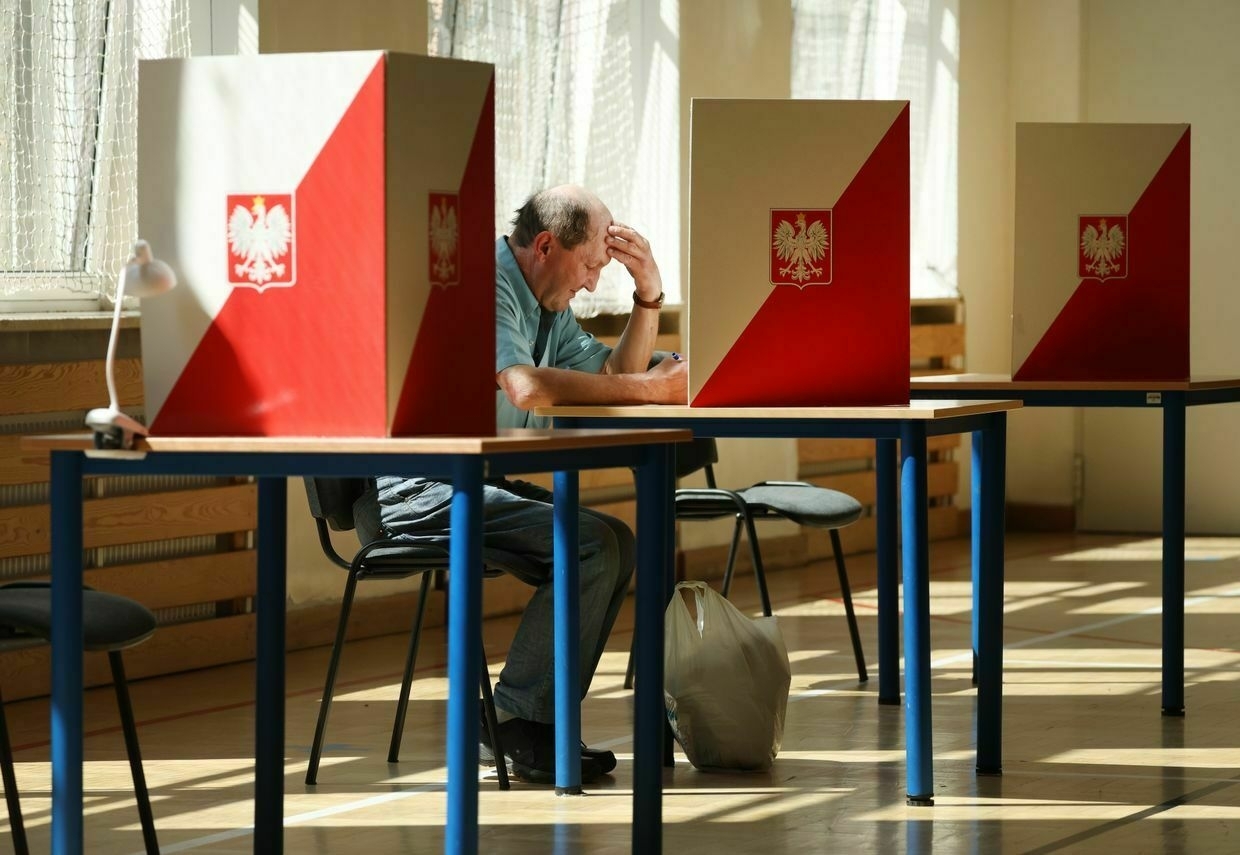
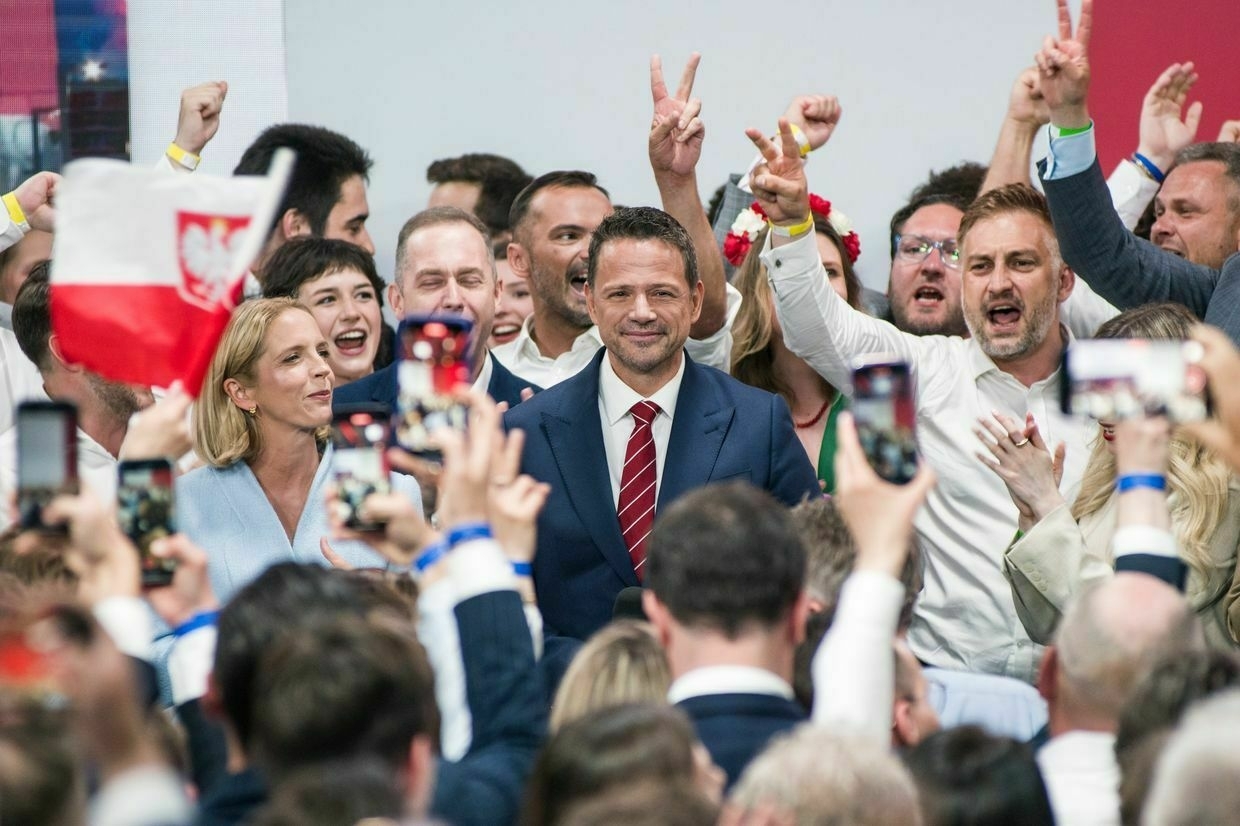
Law and Justice (PiS), led by Jarosław Kaczynski, was ousted from power in the 2023 parliamentary elections, losing control of the parliament for the first time since 2015. Following the Civic Platform’s victory, many in the West celebrated Poland’s liberal comeback.
But now, with support from nationalist and far-right voters rallying behind Slawomir Mentzen and Grzegorz Braun, PiS is in a position to hit back.
The Polish president holds limited executive power, but his veto power can paralyze the centrist agenda of the ruling coalition. Nawrocki pledged to use it to block many of Prime Minister Donald Tusk’s reforms and key decisions.
The bitter campaign has left Poland bracing for further conflict.
 The Kyiv IndependentChris York
The Kyiv IndependentChris York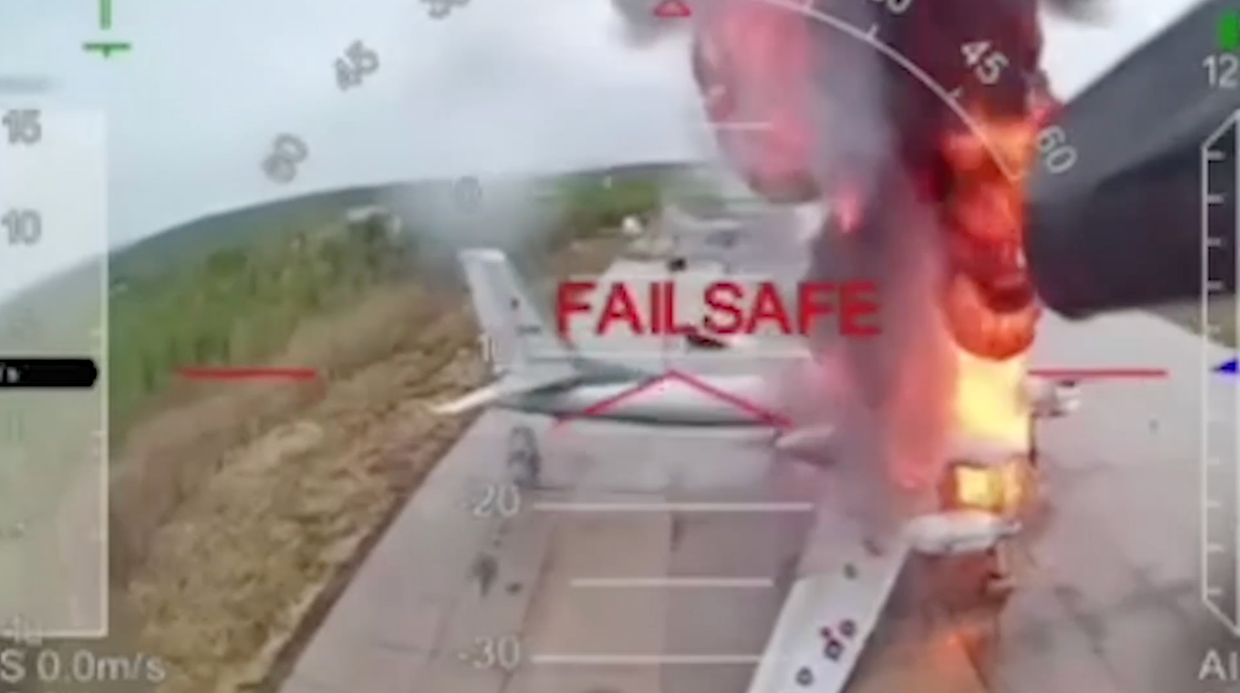
Tusk and his allies played up allegations against Nawrocki, which he either denied or dismissed as political smears. These included accusations of exploiting an elderly man in a property deal, past involvement in football hooliganism, alleged ties to criminal circles and prostitution, and criticism for using nicotine pouches during live debates.
For many voters, Nawrocki’s “tough-guy persona” — displayed in campaign videos of him at shooting ranges and boxing gyms — may have mattered more.
Uncertain Ukraine-Polish relations
Ukrainians have reacted to Nawrocki’s victory with cautious concern.
President Volodymyr Zelensky was quick to congratulate him, expressing hope for “continuing fruitful cooperation with Poland and personally with President Nawrocki."
It’s too early to say whether Poland’s new president will bring significant change to Warsaw’s relationship with Kyiv — but for now, there are few reasons for optimism.
With Poland hosting over a million Ukrainian refugees displaced by the war, Ukraine was one of the dominant topics throughout the campaign. Nawrocki drew criticism for stoking anxiety over Ukrainian refugees, echoing far-right concerns about migration, rising living costs, and security.
“For now, he definitely makes the impression of a Trumpist politician.”
His "Poland first" rhetoric included calls to prioritize Polish citizens in social services and adopt a more skeptical approach to continued aid for Ukrainians.
As president, Nawrocki will become commander-in-chief of the armed forces and play a key role in shaping foreign policy, especially toward countries to the east, where Polish presidents traditionally play a leading role.
Outgoing President Andrzej Duda, also from PiS, reinforced his legacy as one of Kyiv's strongest allies in the final days of his presidency. On May 30, he awarded Ukraine's military intelligence chiefs, Kyrylo Budanov and Vadym Skibitskyi, with Poland's highest state honors for their role in strengthening bilateral defense cooperation.
Nawrocki has declared support for Ukraine's sovereignty and resistance to Russian aggression. But his opposition to Ukraine's accession to NATO and the EU — citing unresolved historical grievances such as the Volhynian Massacre — has raised serious concerns in Kyiv.
Before his political rise, Nawrocki served as director of the Museum of the Second World War and head of the Institute of National Remembrance. His tenure at both institutions was defined by efforts to promote a patriotic historical narrative, including the removal of Soviet monuments — moves that landed him on Russia's wanted list, according to Polish media.
Unlike other Euroskeptic leaders in Central Europe, such as Slovak Prime Minister Robert Fico or Hungary's Prime Minister Viktor Orban, Nawrocki does not express pro-Russian views but he repeatedly accused Zelensky of taking advantage of allies.
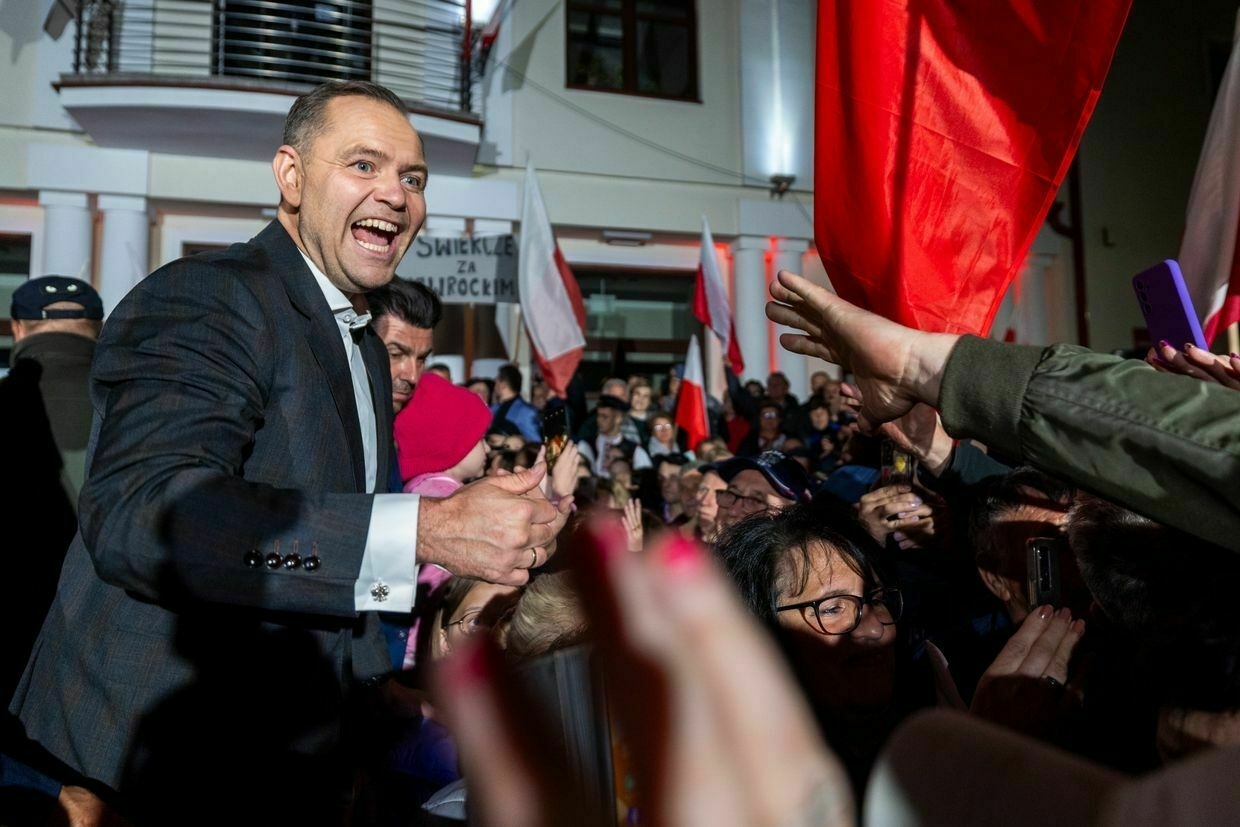
His presidency is likely to open a more transactional phase in Polish-Ukrainian relations.
Seen by some as a "Trumpian" figure, Nawrocki met with U.S. President Donald Trump at the White House during the campaign and had Homeland Secretary Kristi Noem travel to Poland last week to back him.
Nawrocki's victory may also prove troublesome for the Polish government, which seeks to play an important role in a recently formed informal coalition of the U.K., Germany, France, and Poland aimed at counterbalancing Trump's policy on Ukraine.
"For now, he definitely makes the impression of a Trumpist politician," Zbigniew Parafianowicz, journalist and author of Polska na wojnie (Poland at War), told the Kyiv Independent.
"But the future depends on who ends up in his circle. If he is influenced by the people who shaped Duda's actions during the early stages of the war, things could look different."
Mykola Kniazhytskyi, co-chair of the Ukrainian parliamentary group on relations with Poland, expressed hope that Nawrocki will maintain a pro-Ukrainian geopolitical outlook traditional for PiS — pointing to his advisor who recently visited Kyiv.
"I believe that people in Karol Nawrocki's circle, such as Professor (Andrzej) Nowak, will do everything to maintain the new president's support for our European integration processes," he said.
 The Kyiv IndependentKateryna Hodunova
The Kyiv IndependentKateryna Hodunova